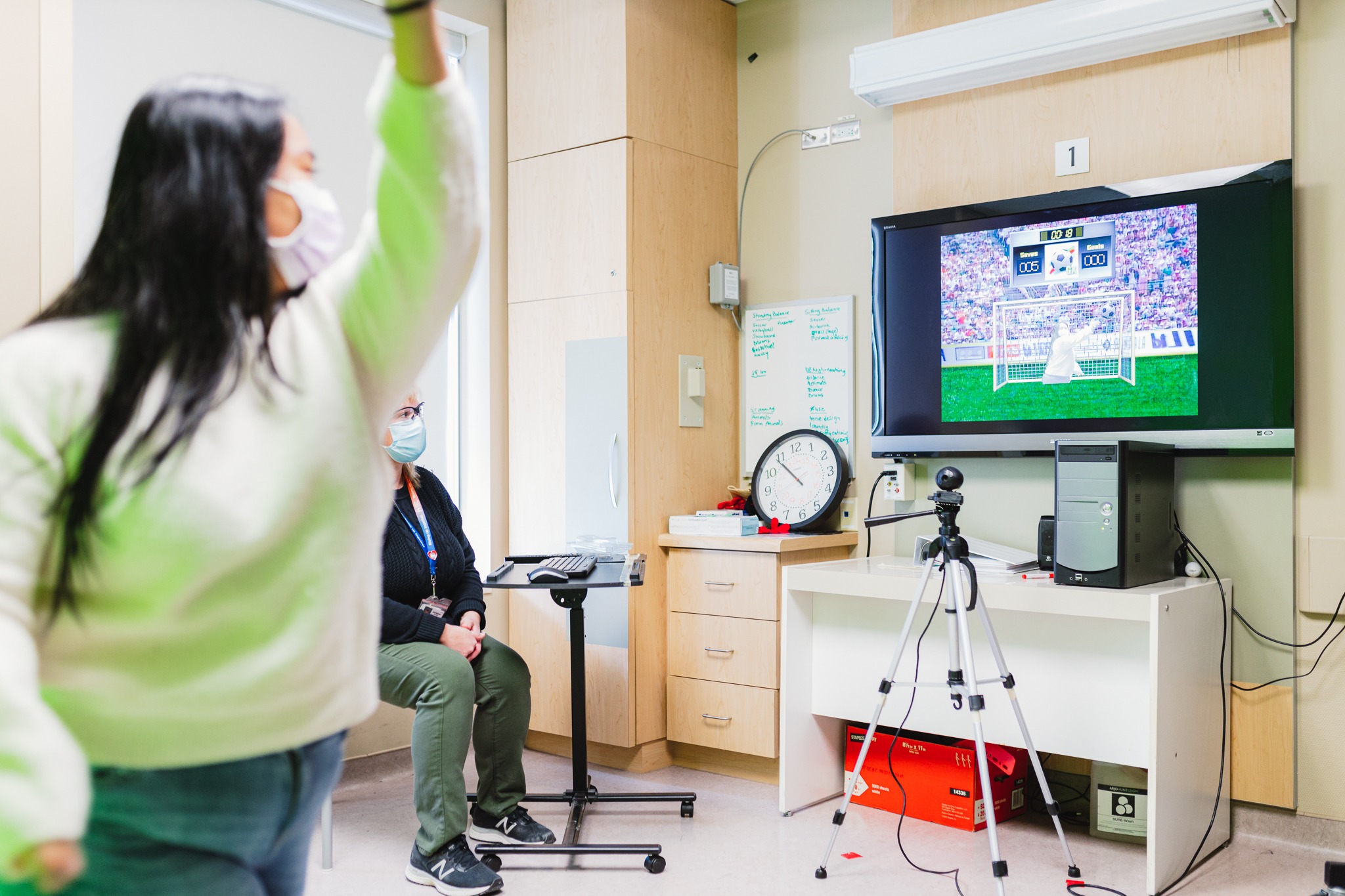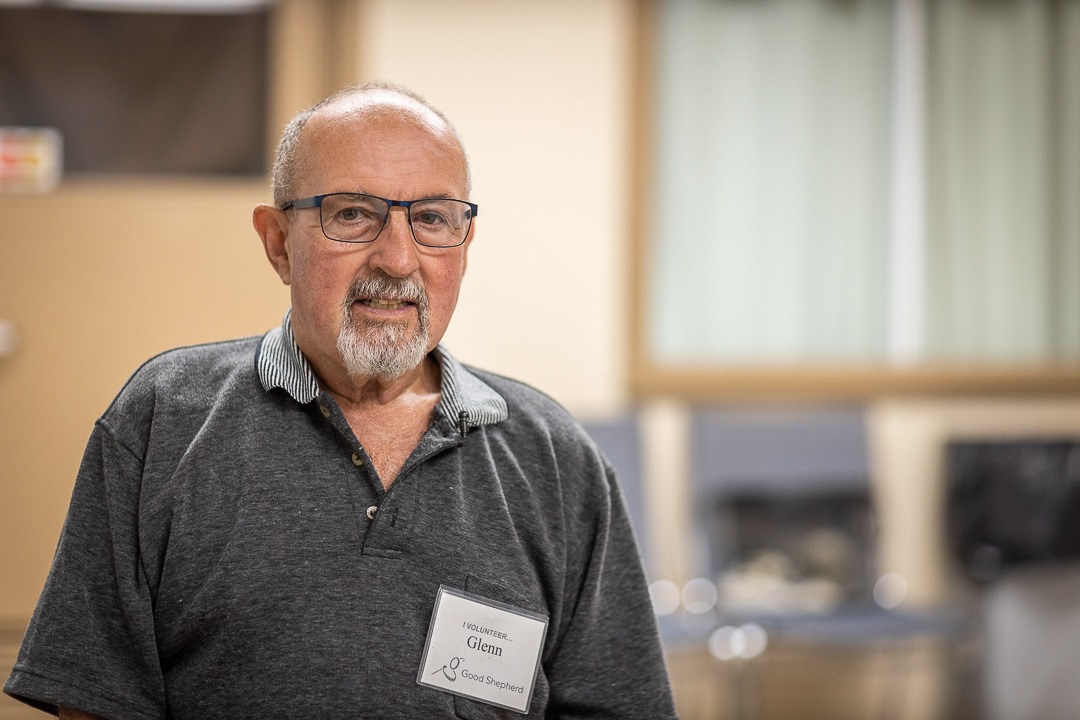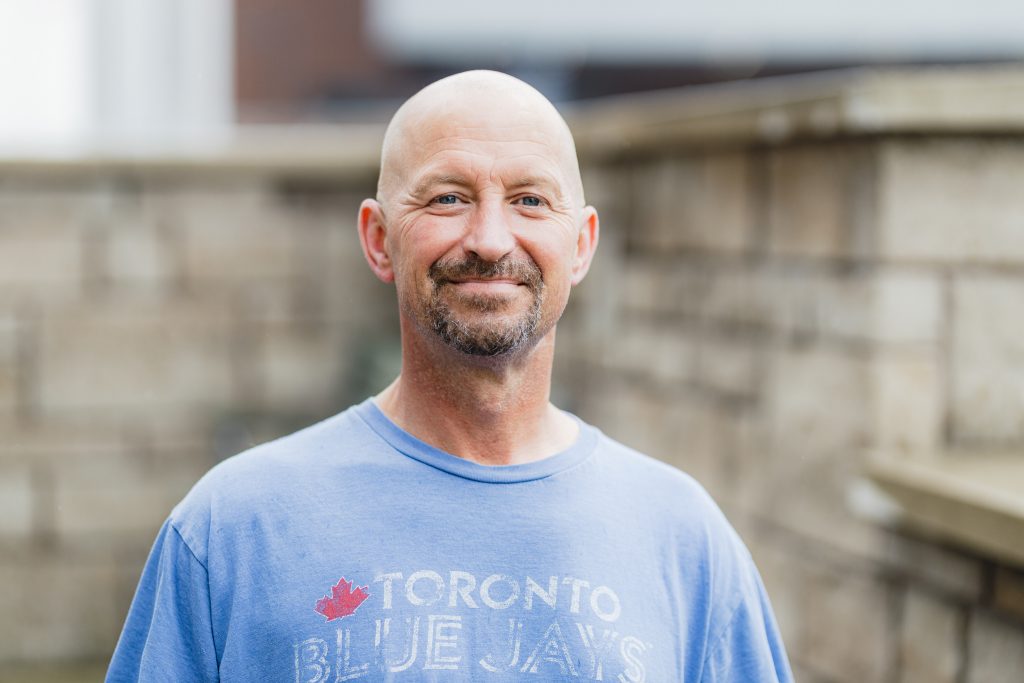
WSIB Specialty Programs find permanent home at HHS
When a workplace injury makes returning to the job especially challenging, Hamilton Health Sciences (HHS) health-care professionals are here to help through a new partnership between the HHS Regional Rehabilitation Centre and the Workplace Safety and Insurance Board (WSIB).
The WSIB provides wage-loss benefits, medical coverage and support to help people get back to work after a work-related injury or illness. For people with complex issues, the WSIB can refer them to its hospital-based Specialty Programs which provide fast access to expert health care by multidisciplinary teams including physician specialists, nurses, physiotherapists, occupational therapists, kinesiologists and psychologists.
“The people helping me are just great.” — Trevor Swackhammer, patient
The Regional Rehabilitation Centre recently started offering WSIB Specialty Programs permanently after a successful 18-month pilot. These programs are fee-for-service, with the WSIB paying HHS for care provided to people they refer from Hamilton and the surrounding area.
Building back slowly
WSIB has referred more than 130 people since the HHS pilot launched. They include Trevor Swackhammer, 51, whose left arm was nearly severed in an industrial accident almost two years ago. “My arm got caught up in a conveyor belt,” says Swackhammer, who was rushed to HHS Hamilton General Hospital for emergency surgery.
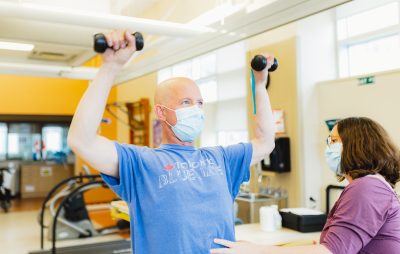
Trevor Swackhammer concentrates on exercises to help him build back strength, mobility and flexibility in his arm and hand.
“Thanks to the team at Hamilton General Hospital my arm was saved,” says Swackhammer. Three surgeries followed in 2021 and 2022 to help improve his mobility.
Swackhammer was referred to the WSIB specialty program for upper extremities to help him build back strength, mobility and flexibility in his arm and hand.
WSIB Specialty Programs offered at HHS provide multi-disciplinary assessment and treatment for injuries of the upper extremities including hands, wrists and shoulders; lower extremities such as feet, ankles, hips and knees; back and neck; and neurology services for health issues such as concussions.
Psychology and psycho-social counselling services are included with all programs, since mental health barriers can also prevent patients from returning to work.
Putting the “special” in Specialty Programs
“The people helping me are just great,” says Swackhammer, who receives physiotherapy, kinesiology and occupational therapy twice a week, including targeted hand therapy to improve strength and flexibility in his left hand and wrist. His HHS team also includes orthopedic and plastic surgeons.

Jennifer Robinson, clinical manager of the fee-for-service program at HHS.
Swackhammer improved enough to return to work, but in a different role. “The road to recovery is going to be very long for me because of the large amount of nerve damage,” says Swackhammer, who works for the same company, but in shipping and receiving.
“My symptoms include pretty much everything in the book…” Stephanie Scott, patient
It takes 140 days, on average, for a patient to be referred to WSIB Specialty Programs after their injury, says Jennifer Robinson, clinical manager of the fee-for-service program at HHS. “That’s because other treatment avenues have been tried first, and didn’t result in the worker achieving the functional goals needed to return to work successfully.”
Building back from a serious concussion
Stephanie Scott, a 32-year-old recruiter, was referred to the neurology specialty program after a workplace accident in July 2021 left her with long-term, debilitating side effects from a concussion. She was referred about a month after her injury because her symptoms weren’t improving.
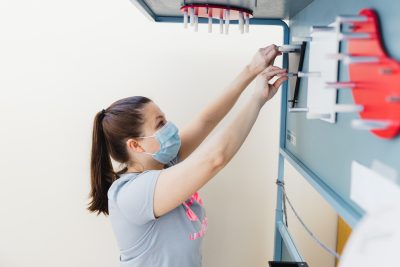
Stephanie Scott follows a regimen aimed at helping her recover from concussion symptoms. Cognitive rehabilitation, balance exercises, strengthening and conditioning are helping her to improve her tolerance for home and work duties.
“My symptoms include pretty much everything in the book, from dizziness, to nausea, pressure in the head, loss of balance, fogginess, memory problems, irritability, noise sensitivity and vision problems,” says Scott, who visits twice a week for physiotherapy, occupational therapy and kinesiology. Cognitive rehabilitation, balance exercises, strengthening and conditioning are helping her to improve her tolerance for home and work duties.
“Some weeks are better than others but I’m definitely seeing an improvement. I have learned to be kind to myself and pace myself through tasks, which helps me achieve a more favourable outcome for my overall emotional well-being and physical health,” says Scott, whose treatment plan is overseen by a neurologist.
“Small steps are still steps forward, and that gives me the motivation to keep going. Overall, it has been a really amazing experience. I’m really grateful for the support and individualized care.”

